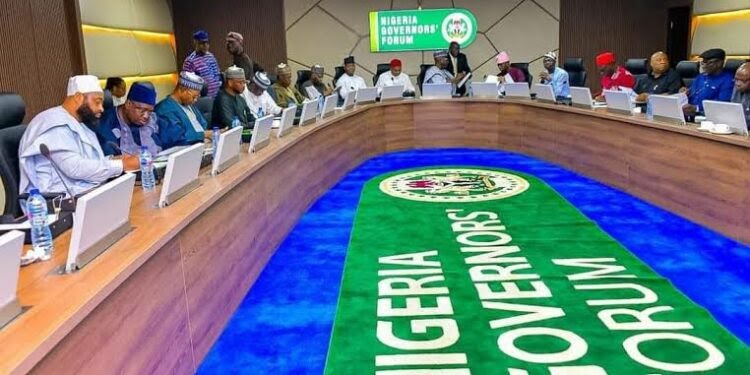Budget Breakdown: 13 States Commit N3.87tn To Salaries And Overheads In 2025 - Who Is Really Winning?
Budget Breakdown: 13 States Commit N3.87tn to Salaries and Overheads in 2025 – Who’s Really Winning?
By: Achimi muktar
As Nigeria’s state governments unveil their 2025 budgets, one glaring trend stands out: a staggering N3.87 trillion allocated to recurrent expenditures. This massive allocation covers salaries, overheads, and other administrative costs across 13 states. But what does this mean for capital projects and the future of infrastructure development?
The combined budgets of these states total N9.07 trillion, with N5.845 trillion earmarked for capital projects. Despite the significant allocations for development, experts are questioning the balance between operational costs and transformative investments.
The Numbers Behind the Budgets
Lagos State leads with a whopping N3.005 trillion budget, of which N1.24 trillion (41.2%) is reserved for recurrent expenses. The remaining N1.76 trillion is dedicated to critical infrastructure.
Bauchi State allocated 39.3% of its N465.09 billion budget to recurrent expenses, with N182.74 billion marked for administrative costs and N282.34 billion for development.
In Bayelsa State, recurrent expenditure takes up 38.2% (N263.38 billion) of its N689.4 billion budget, leaving N404.76 billion for capital expenditure.
Osun State, however, bucks the trend, devoting 62.9% of its N390.03 billion budget to salaries and running costs.
Oyo State allocated nearly half of its N678.09 billion budget to recurrent expenses (N325.57 billion) while earmarking N349.29 billion for infrastructure.
Anambra State, under Governor Charles Soludo, is more capital-focused, dedicating 77% (N467.5 billion) of its N606.9 billion budget to long-term projects. However, the state faces a deficit of N148.3 billion.
Experts Raise Concerns
Economists and financial analysts are expressing skepticism over these spending patterns:
Charles Sanni, CEO of Cowry Treasurers Limited, criticized the imbalance, stating, “The huge recurrent budgets leave little room for impactful capital projects. Without significant investment in infrastructure and growth drivers, the GDP contribution from these states will remain minimal.”
Vincent Nwani, economist and investment specialist, added, “Budgets are too small for transformative growth. Worse, many capital allocations go toward non-productive expenses like cars instead of meaningful, long-term projects.”
Both experts emphasized the need for cost optimization, transparency, and enhanced internally generated revenue through innovative strategies like public-private partnerships and diaspora engagements.
Highlights Across States
Delta State: Aims to spend N587 billion (63%) of its N936 billion budget on capital projects.
Ekiti State: Nearly splits its N375.7 billion budget, with 51% for recurrent costs and 49% for capital development.
Katsina State: Commits 76.85% (N524.27 billion) of its budget to infrastructure, signaling a bold developmental focus.
The Bigger Picture
Stakeholders fear these budgets may fall short due to ambitious revenue projections and inadequate focus on productive investments. With Nigeria’s N47.9 trillion national budget for 2025 already under scrutiny, state-level plans add to the debate over fiscal sustainability.
Will these states strike the right balance to fuel growth, or will recurrent expenditures continue to hold back progress? Only time—and careful execution—will tell.




















